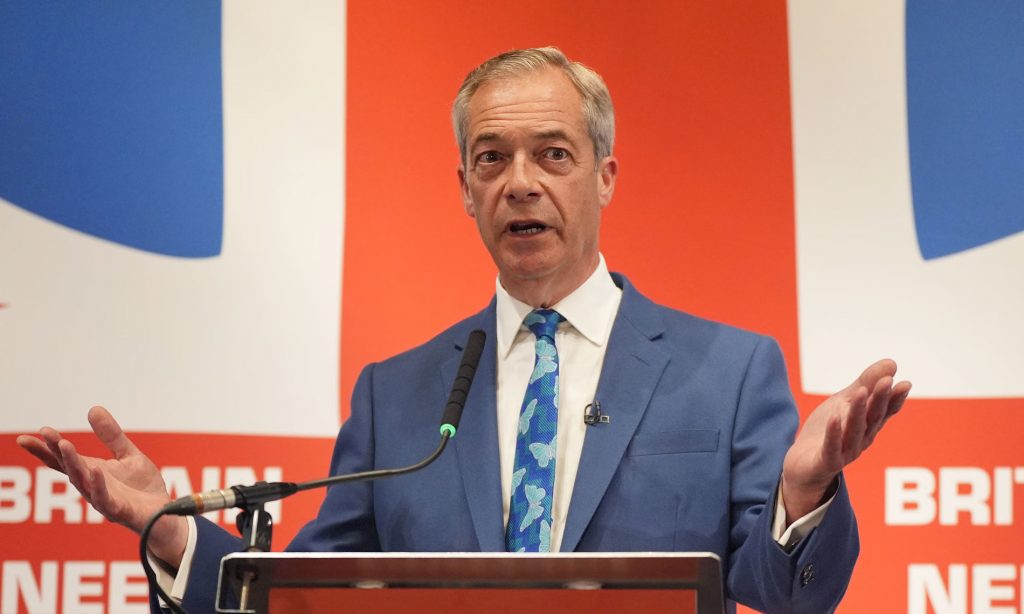Nigel Farage, leader of Reform UK, has unveiled a highly controversial plan to detain and deport all illegal migrants in the United Kingdom, including women and children. Speaking at a press event in Oxford, Farage described the current situation as a “genuine threat to public order” and promised immediate action to stop small boats from crossing the English Channel.
Farage claims that Reform’s policies will halt illegal arrivals “within days” and outlined a five-year plan to deport roughly 500,000 to 600,000 migrants. He said the government would create legal obligations for the Home Secretary to ensure all illegal migrants are detained and removed from the country. The plan also proposes removing barriers created by activist judges and disapplying international treaties, including the 1951 Refugee Convention, the UN Convention Against Torture, and the Council of Europe anti-trafficking convention.
The Reform leader suggested that facilities similar to the UK’s COVID-19 Nightingale hospitals could be repurposed to detain migrants quickly. While he acknowledged that dealing with children is “complicated,” he stated that women and children will still be detained under his plan. His colleague Zia Yusuf, Reform’s head of operations, described the program as “Operation Restoring Justice,” claiming it would immediately track, detain, and deport all illegal immigrants and stop migrant boats permanently.
The announcement drew strong political reactions. Liberal Democrat deputy leader Daisy Cooper compared Farage’s proposals to the actions of Vladimir Putin, accusing him of undermining human rights and misusing taxpayers’ money. Conservative leader Kemi Badenoch accused Reform UK of copying Conservative policies, while Farage’s rhetoric has been described as a “shock and awe tactic” intended to escalate public attention and debate.
Farage emphasized that the main concern is public safety, stating that the rise of illegal migration has made British streets less safe, particularly for women and children. He claimed that most arrivals are “young, undocumented males” from cultures he believes will struggle to assimilate, posing risks to national security.
The proposed reforms would repeal the Human Rights Act 1998 and disapply international agreements that prevent deportation. Farage argued that this would deter people traffickers and save the UK hundreds of billions of pounds by 2034. Reform UK’s plan has sparked intense debate, raising legal, ethical, and practical questions about how such mass deportations could be carried out.
While the government continues its “one in, one out” plan with France to return migrants who cross the Channel illegally, Farage insists that Reform UK’s policies are faster and more effective. Critics argue that mass detention, including of children, raises serious humanitarian and legal concerns that could be challenged in courts.
Whether these proposals can be implemented remains uncertain. Farage’s announcement has reignited discussions about immigration, public safety, and the UK’s international obligations, making it one of the most controversial political interventions in the migration debate this year.

